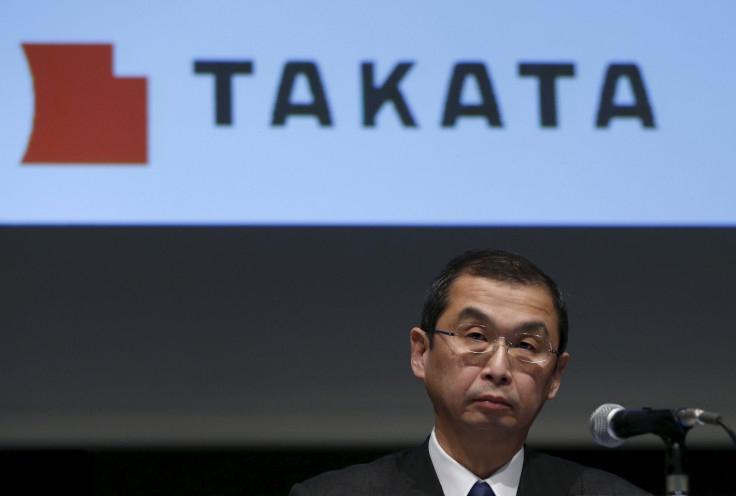Takata Airbag Scandal: Toyota Issues Second Recall As Fresh Concerns Emerge

Toyota Motor Corp. reportedly issued a second round of recall for 1.6 million cars in Japan Wednesday, to check for faulty airbags after a similar component by Takata Corp. in a Nissan Motor Co. vehicle injured a passenger upon deployment last month.
Toyota said it was asking owners of roughly 20 models produced between 2004 and 2008, including the Vitz, to have their cars reinspected for airbag defects, following an initial recall in May and June.
Takata’s airbags have been at the center of one of the largest and most complex recalls in automotive history, with 11 manufactures recalling about 19 million vehicles in the U.S. alone.
The faulty airbags contain a metal cartridge loaded with propellant wafers, which in some cases exploded with excessive force. So far, the inflators have been linked to eight deaths and 100 injuries. However, the cause of the malfunction has been hard to establish, with different agencies citing poor quality control in manufacture, use of ammonium nitrate as an inflator and even the design of the car itself.
Toyota issued the second recall after officials of the U.S. National Highway Traffic Safety Administration (NHTSA) said the agency had expanded its investigation beyond the airbags situated in the front of the driver's seat to include side airbags as well.
Earlier this month, NHTSA fined Takata $70 million over the faulty airbags and ordered the company to stop using ammonium nitrate as a propellant.
Honda, the automaker with the most vehicles affected in the recall and also Takata's largest customer, said it had decided to discontinue the use of Takata airbags as the company had “manipulated and misrepresented test data for certain airbag inflators.”
On Tuesday, Ford followed suit by announcing that it would also stop using Takata airbags for its cars.
Ford will also drop Takata as airbag supplier: https://t.co/1UPonENIh4 #Ford #TakataAirbag pic.twitter.com/W36ggKXAkj
— Autoblog.com (@therealautoblog) November 24, 2015The embattled Japanese auto parts supplier has lost almost a half of its market value since the scandal broke.
Takata also recorded a combined special loss of 17.2 billion yen ($140.29 million) for the April-September period, according to reports. The company cut down its forecast for full-year net income to 5 billion yen ($40.78 billion) from 20 billion yen ($163.13 million) earlier.
© Copyright IBTimes 2024. All rights reserved.











